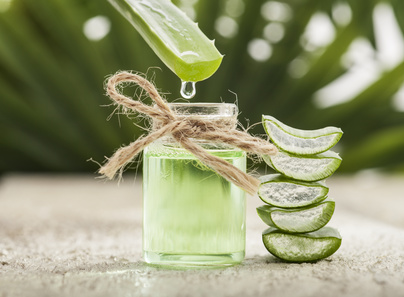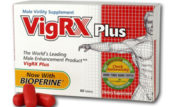By Steven Hutchings
 Admit it, you’ve passed through the produce section at your local supermarket without giving ginger a second glance. Heck, we’ve all done it, myself included. But it’s a mistake to ignore this ancient remedy used for at least 4,400 years in Chinese medicine – a wealth of new studies show that ginger can reduce inflammation, relieve nausea and perhaps even lower risk of colon cancer, among other benefits.
Admit it, you’ve passed through the produce section at your local supermarket without giving ginger a second glance. Heck, we’ve all done it, myself included. But it’s a mistake to ignore this ancient remedy used for at least 4,400 years in Chinese medicine – a wealth of new studies show that ginger can reduce inflammation, relieve nausea and perhaps even lower risk of colon cancer, among other benefits.
Go ginger!
Native to Asia, ginger is the root of the plant Zingiber officinale and used as a delicacy and a spice. Yes, it’s true, evidence suggests that ginger can reduce morning sickness in pregnant women. They generally require less of it for relief than they would for anti-nausea pills too, because ginger is rich in active substances that promote a stronger immune system.
Study Finds That Ginger May Reduce Risk of Colon Cancer
Being a natural anti-inflammatory, ginger has a variety of health applications, one of which is particularily encouraging: according to a 2011 study, ginger may reduce inflammation of the GI tract. That suggests that ginger might also lower risk of colon cancer – the most common form of colorectal cancer and a leading cause of preventable deaths.
Many studies confirm that ginger can reduce inflammation, and studies on mice and rats show it may reduce tumor development. However, this is the first human study, and the first step in analysis of which compounds in the spice may reduce GI inflammation, and with it, risk of a disease linked to red meat, smoking, alcohol and inflammatory bowel disease.
In the study, published in Cancer Prevention Research, researchers randomly assigned 30 healthy adults to take either two gram capsules of ginger powder or a placebo powder each day for two weeks. The ginger dosage was equivalent to about two tablespoons of ground-up ginger. That’s probably beyond what the average healthy American eats, but within what adults in Asian countries would consume each day.
Many studies confirm that ginger can reduce inflammation, and studies on mice and rats show it may reduce tumor development. However, this is the first human study, and the first step in analysis of which compounds in the spice may reduce GI inflammation.
The study researchers point out that colorectal cancer is less common in those countries too, though other factors, like lower meat consumption and greater emphasis on fiber and vegetables, may also be at work.
The researchers asked study participants to take the capsules with meals and were not allowed to use aspirin and non-steroidal anti-inflammatory drugs (NSAIDs) before or during the study, because they’re both linked to anti-inflammatory effects and could distort the study results. As well, the researchers took tissue samples from each participant’s colon before and after the study, which they later tested for eicosanoids – chemicals that increase inflammation in the gut.
On the study’s conclusion, the ginger decreased GI inflammation when compared to the placebo.
Bear in mind these are preliminary findings. Research continues, and will likely move forward given these results, but we’re not at the point where it’s appropriate to take ginger specifically to ward off this ailment, which saw 1.23 million new cases in 2008 and killed north of 600,000 patients.
Having said that, it’s an encouraging turn. Ginger clearly helps reduce inflammation, be it in the gut or elsewhere. And it opens the door for further research which, going by these findings, may be more definitive and just as encouraging.
Ginger May Reduce Morning Sickness
Ginger may reduce nausea from morning sickness. Human studies show that one gram of ginger was more effective than a placebo for women with nausea from pregnancy on a short-term basis.
Several studies support this. One small study, of 30 pregnant women with severe vomiting, found that a gram of ginger when taken daily for four days was more effective than a placebo. A larger study, of 70 pregnant women, mirrors these results, though again ginger was only effective when used short-term.
 These findings are good news, because some anti-vomiting medications may cause birth defects. Ginger is generally well-tolerated too, though it may cause heartburn or acid reflux in some women.
These findings are good news, because some anti-vomiting medications may cause birth defects. Ginger is generally well-tolerated too, though it may cause heartburn or acid reflux in some women.
Speak with your doctor if you want to use ginger as a remedy for morning sickness: he or she knows your medical history and is in the best position to recommend a dosage for your needs.
Remember that ginger is highly concentrated with active ingredients; most women find they require less of it to reduce nausea than they would for an anti-nausea medication. Should you still be interested, some ideas to run past your physician:
Ground ginger – Take four 250 mg capsules of ground ginger, four times each day. Your symptoms should improve within four to seven days. Look for ginger capsules regulated by the FDA and that are not tainted with substances that could harm a fetus.
Grated fresh ginger – Buy ginger root and make a tea – chop one or two ½ inch slices and add to a pot of two to three cups boiling water. Strain the root and pour into your mug. Add an optional dash of honey for flavor.
Ginger syrup – You can buy ginger in a sugar syrup base, available in many health stores.
Crystallized ginger – Another option, some women find that eating crystallized ginger can reduce morning sickness.
Note there is some evidence that ginger may also reduce motion sickness, though results are mixed and it did not reduce nausea. Ginger may also help make periods less painful.
Ginger Might Help Arthritis
Ginger’s anti-inflammatory properties make it of interest to people with arthritis. In a study of 261 people with osteoarthritis of the knee, patients who took a ginger extract twice daily had less pain and required fewer pain-killing medications than those who took a placebo.
Several more studies support this; one 12 month study published in Osteoarthritis Cartilage found that ginger reduced movement pain, with a decrease in score from 76.14 at baseline to 41.00 six months later. Pain remained low in the second half of the study while it increased in patients taking a placebo.
 Knee swelling improved too, in those who took ginger – a sign of reduced inflammation – with reduced mean knee circumference from 43.25cm to 39.26cm at the twelfth week. These findings were further supported when the placebo and ginger groups switched roles. Patients taking ginger had less swelling and vice versa for those on the placebo.
Knee swelling improved too, in those who took ginger – a sign of reduced inflammation – with reduced mean knee circumference from 43.25cm to 39.26cm at the twelfth week. These findings were further supported when the placebo and ginger groups switched roles. Patients taking ginger had less swelling and vice versa for those on the placebo.
Three further studies, published twice in 2003 and again in 2005, suggest that 6-gingerol, an active ingredient in ginger, might be the mechanism responsible that reduces arthritis-related swelling in stricken patients. Ginger appears to suppress pro-inflammatory compounds cytokines and chemokines, produced by synoviocyte, chrondrocyte and leukocyte cells.
Side Effects of Ginger
Ginger is natural and generally well-tolerated in healthy adults. Side effects of ginger, though rare, may include:
mild heartburn
gas
diarrhea
mouth irritation
lower blood pressure
Again, speak with your doctor regarding any specific health concerns or interactions with medications or supplements. Note that ginger might also increase risk of bleeding in some people and is not recommended for patients with bleeding disorders or on blood-thinning medications and diabetic and/or drugs for high blood pressure.
How to Buy Ginger
Ginger supplements are available as extracts, tinctures, capsules or oils. They’re made from fresh or dried ginger root or by distillating the oil of the root with steam.
Most of the studies mentioned in this article involved ginger supplements rather than fresh ginger. Supplements appear to be quite effective but they can be difficult to regulate and their purity may vary. For this reason, it can be difficult for a doctor to recommend a dosage for ginger supplements.
If you buy ginger powder, you might find a better quality product in a local spice store rather than in a supermarket. Try to buy an organic ginger supplement too, which is less likely to be diluted.
Buy ginger root and make a tea – chop one or two ½ inch slices and add to a pot of two to three cups boiling water. Strain the root and pour into your mug. Add an optional dash of honey for flavor.
Personally, I’ve been a fan of fresh ginger since I learned how to make ginger tea. Believe me, it’s one of the most relaxing ways to finish your day. Fresh ginger has more flavor than supplements, too, and higher levels of gingerol – the anti-inflammatory compound that may help people with arthritis.
 Fresh ginger is available in the produce section in most grocery stores. Typically available as either young or mature, the latter is the more common of the two: you’re looking for ginger that is firm, smooth and free of mould. Mature ginger has a hard skin and needs to be peeled. Young ginger does not.
Fresh ginger is available in the produce section in most grocery stores. Typically available as either young or mature, the latter is the more common of the two: you’re looking for ginger that is firm, smooth and free of mould. Mature ginger has a hard skin and needs to be peeled. Young ginger does not.
Fresh ginger will keep in a refrigerator for up to three weeks if it is unpeeled, or six months in a freezer. Keep dried ginger powder in a tightly sealed glass container in a cool, dry and dark place.
How to Prepare Ginger
You’ll need to peel the skin off mature ginger with a paring knife. Then you can mince, slice or julienne the ginger and add it to your cooking when you choose to impart a specific flavour. Add it at the beginnning, for example, and the taste will be milder. Add it near the end and it will be more pungent.
Try making ginger lemonade: combine freshly grated ginger with lemon juice, cane juice, honey or water. You can also add some zest to your side rice dishes with grated ginger sprinkled on them with sesame seeds and nori strips. Add ginger to soy sauce, olive oil and garlic to make an amazing salad dressing, or just click here to learn more great recipes with ginger and how to incorporate this awesome and incredibly healthy spice into your daily ritual.
Experiment – and have fun!
+Steven Hutchings




